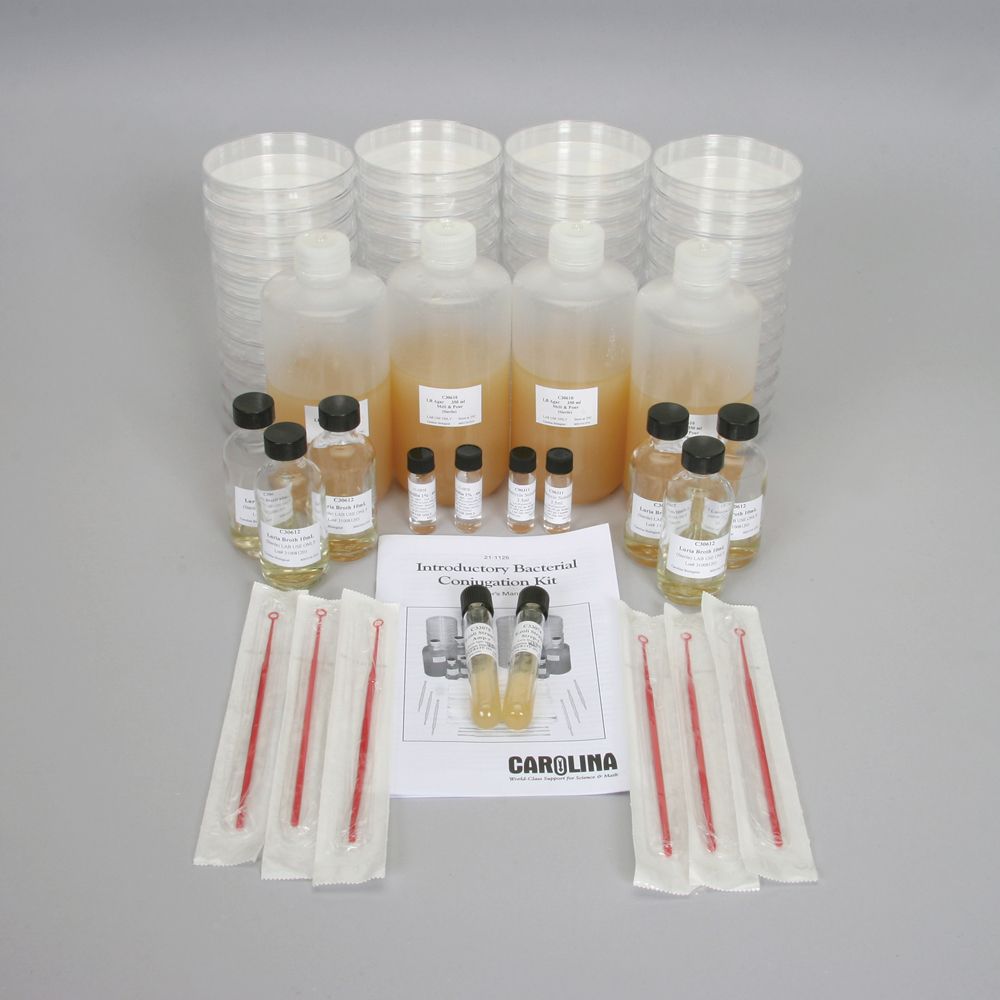Description
In this bacterial conjugation lab students observe the results of bacterial gene transfer for antibiotic resistance from one E. coli strain to another.
Intermediate—Easy to perform; requires some background knowledge.
Developed in cooperation with Dr. Robert Thomson, formerly of Marquette University. Students identify and confirm the identity of bacteria with different antibiotic resistance by streaking on different antibiotic selective media. Strains are then combined on a “mating” plate to allow conjugation. Results are tested on various media for growth response to demonstrate that DNA can be transferred between 2 genetically different cells. Requires an overnight culture and minimal teacher preparation. Kit is designed for 8 lab stations with student groups of 2 to 4.
Note: This kit includes perishable materials. Kit and perishable components will ship separately and may arrive on different days. Antibiotic solutions and cultures last 1 month when refrigerated.
Time Requirement
Teacher preparation: 2-1/2 hours. Lab activities: Approximately four 50-minute lab periods.
Digital Resources
Includes 1-year access to digital resources that include a teacher’s manual, student guide, and more.
Crosscutting Concepts
Patterns
Cause and Effect
Science and Engineering Practices
Analyzing and Interpreting Data
Constructing Explanations and Designing Solutions
Engaging in Argument from Evidence
Obtaining, Evaluating, and Communicating Information
Learning Objectives
- Learn about bacterial conjugation, a naturally occurring mechanism of genetic recombination.
- Be introduced to one way in which bacterial antibiotic resistance is spread.
- Practice interpreting experimental results and providing an explanation for observed patterns.
- Acquire hands-on experience working with bacteria.
Prerequisite Knowledge and Skills
Students should feel comfortable taking appropriate safety precautions when handling bacteria. They should have basic knowledge of genetic recombination, inheritance, and natural selection.

